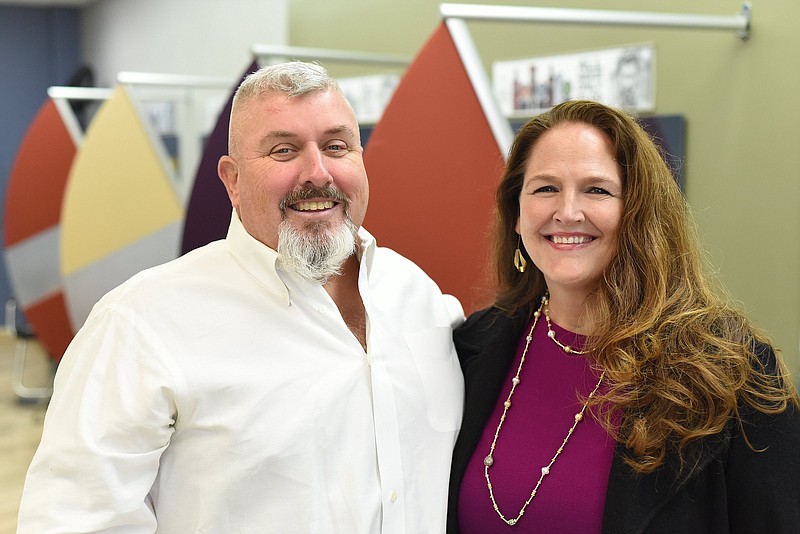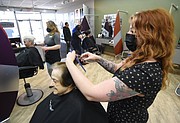In March of 2020, Mary Hughes and her husband, Hunter, were ready to close on the purchase of five Great Clips hair shops to add to their portfolio of 29 salons.
"We were within a day of signing papers," she says.
At that point, the COVID-19 coronavirus had wreaked havoc elsewhere in the world, and now it was too close to home.
"I thought, 'Let's hold off on this for about a week,'" she says. "Then everything started closing."
The couple passed on the deal, and were forced to close the salons they already owned – 13 in the Chattanooga area, six in and around Birmingham, Alabama, and another 10 in the Mobile, Alabama/Pensacola, Florida, area.
"We had to lay off our entire staff, more than 200 people," Mary Hughes says. "We never thought we'd have to do anything like that, ever. Our staff is our family. I was crying."
Hunter Hughes says the couple bought their first Great Clips salon in August 1997. For the next 20-plus years, he says, they added locations, growing to the point that the overall revenue for 2019 was in the high seven figures.
"We were bulletproof," he says.
Hair apparent
Mary and Hunter Hughes own 29 Great Clips salons: 13 Chattanooga locations, six in and around Birmingham, Alabama, and 10 in and around Mobile, Alabama, and Pensacola, Florida. The stores have more than 200 employees.
Few were pandemic-proof in early 2020, though. Hunter Hughes says he and his wife "went through everything we had" in an effort to keep the business alive.
"We took a second [mortgage] on our house," he says. "Our lenders let us defer payments, and our landlords worked with us, but we didn't know how we'd get the money to open back up."
The couple saw a way forward when the federal government announced the Paycheck Protection Program (PPP), through which employers could get forgivable loans to make payrolls.
"I thought that if we could get PPP, we might survive," says Mary Hughes, a certified public accountant who'd earned undergraduate and graduate accounting degrees at the University of Tennessee at Chattanooga.
It took two tries, but the couple got funds and wound up reopening their salons in May 2020, about six weeks after closing.
"There was such a demand," Hunter Hughes says. "We became profitable again pretty quickly."
But then the Hugheses faced another problem – only about 75 percent of the staff was willing to return, Mary Hughes says, and the pandemic-specific requirements imposed on hair salons made for slow going.
"Limited hours, using only every other chair for distance, couldn't have anyone in the waiting area," Mary Hughes says. "And a few [customers] were ugly to staff – they didn't like having to wear masks and having to stay six feet apart. We had to call police a few times."
Photo Gallery
Cutting deals: Chattanooga owners of 29 Great Clips salons battle back from pandemic impacts
Hunter Hughes says that, nearly two years later, customer count is down by between 15% and 18% compared to 2019, and staff is down by about 10% for the same stretch.
Mary Hughes says recruiting took a hit when the pandemic forced cosmetology schools to close for months, but she and her husband are offering incentives including 401(k) retirement accounts with employer match and health insurance. Hunter Hughes notes that he and his wife offer a bonus program for stylists and managers.
"We have stylists who are making more now than they were as managers [elsewhere]," he says.
And the pandemic has had one more, "very profound" effect, Mary Hughes says.
"We have a phenomenal staff," she says. "We wouldn't have made it through without them. They care about us, and we care about them.
"These last two years have put so much stress on staff," she says. "We have staff members who've lost someone to COVID. Anytime we can do something to alleviate that stress, that's what we're doing."

